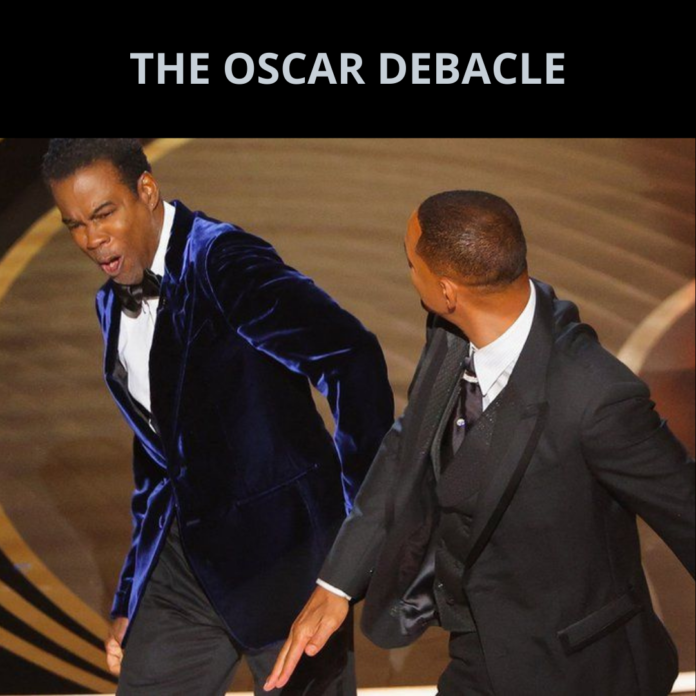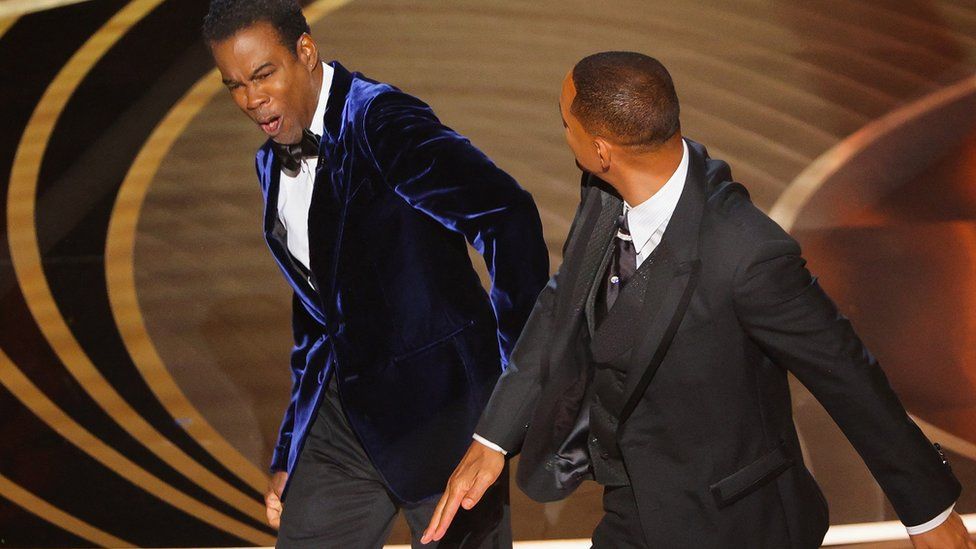
Dear Rabbi
OK so by now everyone has seen the whole episode of Chris Rock making fun of Will Smith’s wife’s illness and the latter going up to him and smacking him. I’ve seen the debate raging everywhere and there seems no clear consensus on this. Can you tell me what the Jewish view is?
Dana
Some argue how chivalrous of the man to defend his wife like that so publicly. Others condemn him for his violence. Some argue that the verbal abuse was just as bad and he had the right to respond whichever way. Others maintain that they are incomparable.
Many of us grew up with the slogan, “sticks and stones may break my bones but words will never hurt me.” Nothing can be further from the truth. Words matter. Jewish law has a very strong position on verbal abuse. Daily in our prayer service (at the end of the Amidah) we ask G-d to help to “guard my tongue from speaking inappropriately.” But that remains eminently incomparable to physically striking someone.
In the Torah we read how Moses went out one day and saw one man striking his fellow and immediately said: “Wicked one, why are you hitting your fellow?” The Talmud quotes the following: “Rash Lakish said, how do we know that a person who raises his fist is called a wicked person even though he has not yet hit? From the verse, “he said to the wicked one why do you strike your fellow…” (Sanhedrin 58b).
I’m not going to get into the rights and wrongs of comedy – what people should or should not expect. The hard fact is, as I wrote, words matter. Making fun of someone, especially their illness, is grossly offensive and insensitive. But, as I learnt already in kindergarten, nothing ever justifies physical violence. If he had shot him in the kneecap, would that then have been OK? Who gets to decide what forms of violence are more or less acceptable. There’s a reason it’s called assault and is against the law.
It’s not chivalry. It’s pure bullying. Chivalry would have been walking up to him and telling him publicly he was bang out of order. He would have received universal applause. What he did was rage with a broad range of deep, underlying issues.
Pesach Cleaning 2022
Dear Rabbi
Pesach is coming and I am stressing. Last couple of years during lockdown I found life more relaxing and easier to cope with the pre-Pesach cleaning. But this year it just seems so much again with all the old anxieties creeping back in. I dread the cleaning and the chaos. Your guidance will be appreciated.
Sandra
Dear Sandra
That’s just the point, isn’t it? The fact that you were more relaxed these past two Pesachs only proves that it need not be a stressful experience. This question comes up annually and I can only sum up what I have said before.
No one has benefitted more from Pesach cleaning than the tourist industry. For many, the enticement of not having to lift a finger makes the cost more than worthwhile. From Mexico to Manitoba you can find a five-star Pesach experience virtually anywhere. The food may not be Mama’s recipe, and sharing a dining-room with four hundred people singing Vehi Sheamda in a variation of six different tunes – simultaneously, may not be as atmospheric as being surrounded by the warmth of family in the privacy of one’s own home; but it still ensures that tender hearts don’t start palpitating at the sight of Mr Muscle, Flash or Domestos.
For the benefit of those who do stay home however, it all comes down to one verse: “No leavened matter shall be seen throughout your property.” This is the one verse that transforms clean conscientious housewives into OCD on the verge of a breakdown. I know some women who go scrubbing in cupboards before Pesach which hadn’t been opened since, well the last time it was cleaned, before the previous Pesach My dear mother bless her, even in her older age, displays more energy in her Pesach cleaning than the average Olympic medallist. When we were younger there was perhaps always the risk that we would take food into the playroom in the basement. The last of my siblings moved out of home nearly three decades ago. Still, my mother’s attention to detail in every nook and cranny of that room is no less today than it was back then. And she’s not even home for the holiday!
I think there is a psychological explanation in that Pesach has such a hold on history which is why we are driven to such punctilious observance. All the cleaning and scrubbing, the change of diet and habit is precisely what has so emblazoned Pesach on the Jewish psyche so that we always remember the birth of our nation. Indeed many non-observant Jews will run a mile from a breadcrumb during the eight days.
But I want to go on the record to say, Pesach cleaning is not spring cleaning and it is precisely the over-obsessiveness that risks turning one of our most exciting festivals into a dreaded experience. It’s almost as though we’re looking to relive the servitude in Egypt so that we can better appreciate the Exodus celebration when the holiday arrives. “No leavened matter” means exactly that. It means no chametz food particles. It means certain sealed cupboards, koshered stoves and covered countertops. It does not mean going where no man – or woman – or child – has gone before. It does not mean scrubbing the parquet floor till you’ve sanded the wood down an inch. It doesn’t mean spending hours scouring the bath – unless you’ve actually enjoyed the occasional sandwich in there. And it certainly doesn’t mean that one should perceive Pesach preparation with the same trepidation as the Jews perceived their Egyptian taskmasters.
On Passover we greet one another with Chag kosher v’sameach – “a kosher and happy Pesach.” The kosher bit is paramount. But for too many it comes at the expense of happy. Don’t do that. Look after yourselves and each other.










